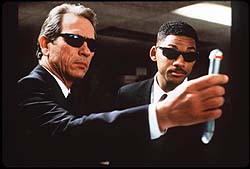Pierre,
If I had to guess, I'd have to bet that the license holder was never on the job and probably hired day laborers (who did not have proper training or experience) to do the work. While there's no law in hiring day workers, he is still the license holder and is ultimately responsible. I used to do sub-contract work for a company in Rockland Cty., NY that did the same thing on many occasions. The owner once hired a young fellow from India who could barely speak English and sent him out to inspect fire alarm systems. He pulled a manual station at a gas station (not knowing what it was for) and dumped dry chemical on a lady filling up her car. Yes, there was a lawsuit. One of my instructors/inspector used to say, "I know whether you were on the job or not as soon as I pull up to inspect. That's when I grab the red stickers." Sorry you had to waste your time but glad to have inspectors like you.
Anyway, getting back to tape or no tape, I'm with Allenwayne on this one and for the same reasons and especially when using those metal spark guards (that's a sore subject from another thread).
Phil,
Gold Star Electric
New Jersey



